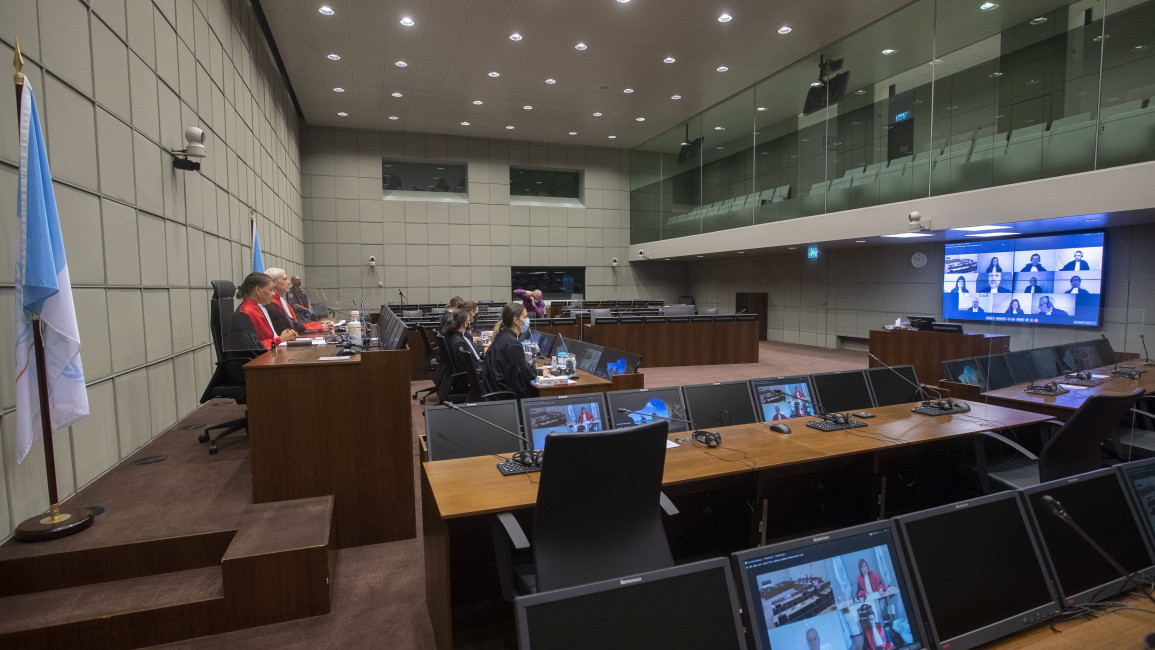Cash-strapped Lebanon court scraps start of new trial
A UN-backed court on Thursday cancelled the opening of a new trial of one of the killers of Lebanese ex-premier Rafic Hariri as it battles a funding crisis that could force it to close.
The Special Tribunal for Lebanon, based in the Netherlands, was meant to begin the trial of Hezbollah suspect Salim Ayyash for three other attacks targeting politicians on June 16.
But a day after the tribunal announced that it would shut without an urgent cash injection by the end of July, the court said the Ayyash hearing had now been "cancelled due to lack of funds".
"It also suspended all decisions on filings presently before it, and on any future filings, until further notice," the court said in a statement.
The court said it "reiterates its urgent call upon the international community for its continued financial support".
#UPDATE A UN-backed court on Thursday cancelled the opening of a new trial of one of the killers of Lebanese ex-premier Rafic Hariri, a day after saying it risked closure as it has run out of money pic.twitter.com/bu17eqJMnH
— AFP News Agency (@AFP) June 3, 2021
The Lebanon tribunal has faced criticism in the past for securing just one conviction since it opened in 2009, despite an overall cost so far of between $600 million and $1 billion.
Ayyash was convicted in absentia and sentenced to life imprisonment over the huge 2005 truck bombing that killed Hariri and 21 other people, while three other suspects were acquitted.
Prosecutors have appealed against the acquittals.
The court announced last year that it would hold a separate trial for Ayyash over attacks in 2004 and 2005 on Druze MP Marwan Hamade, former Lebanese communist party leader George Hawi and then-defence minister Elias Murr.
Hawi and two other people were killed in the attacks, while Murr, Hamade and three other people were injured.
Ayyash remains on the run, with Hassan Nasrallah, the head of the Shia Hezbollah movement, refusing to hand him over, alongside three other defendants who were eventually acquitted.
But the fate of the proceedings against him is now uncertain as the court runs short of cash.
The tribunal draws 51 percent of its budget from donor countries and 49 percent from crisis-hit Lebanon.
The court said that "the challenging circumstances generated by the global Covid-19 pandemic and the concerning situation in Lebanon" had already forced it to slash its 2021 budget by 37 percent compared to previous years.
"Despite taking significant cuts of staff and across the board reductions, without additional funding, the Tribunal will be forced to close its doors in the coming months", Court Registrar David Tolbert said.
Lebanon is in the grip of a severe economic crisis, with the World Bank saying Tuesday that it was likely to rank among the world's worst financial crises since the mid-19th century.
Read also: Who are the accused in Rafic Hariri murder trial?
The court was born from a UN Security Council resolution and inaugurated in 2009 to try suspects in the killing of Hariri.
The Sunni billionaire, who had stepped down as Lebanon's prime minister in October 2004, was killed in the February 2005 suicide blast targeting his armoured convoy.
The attack killed 22 people, injuring 226.



